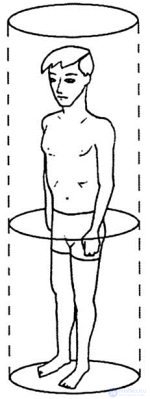Most animals perceive some airspace around them as personal space. How far this territory spreads depends on the conditions in which the animal is located and on the population density of the area. Personal territory may expand or contract depending on the circumstances. A lion dwelling in the savannas of Africa can consider a territory with a radius of 50 kilometers or even more as personal space. It all depends on the population of lions in the area. A lion marks the boundaries of its territory with excrement or urine. The same lions who live in zoos as a group, consider their personal space just a few meters around them, which is explained by high crowding.
Like other animals, each person has his own "air bubble" surrounding his body. The size of this “bubble” depends on the density of the population in the place where the person grew up. Thus, it can be said that personal space is to some extent determined by nationality. The Japanese, for example, are accustomed to crowding, representatives of other nations prefer “large open spaces” and stay apart from each other.
Personal space - the “air bubble” that always surrounds a person Studies show that people in prison have greater spatial needs than most of us. This is explained by the fact that in prison a person constantly has to defend his own space. The solitary confinement, during which no one intrudes on the prisoner's personal territory, has a calming effect. The level of irritability and rudeness of passengers increased significantly in the 90s, when airlines reduced the distance between the seats in order to compensate for financial losses.

Comments
To leave a comment
Body language
Terms: Body language